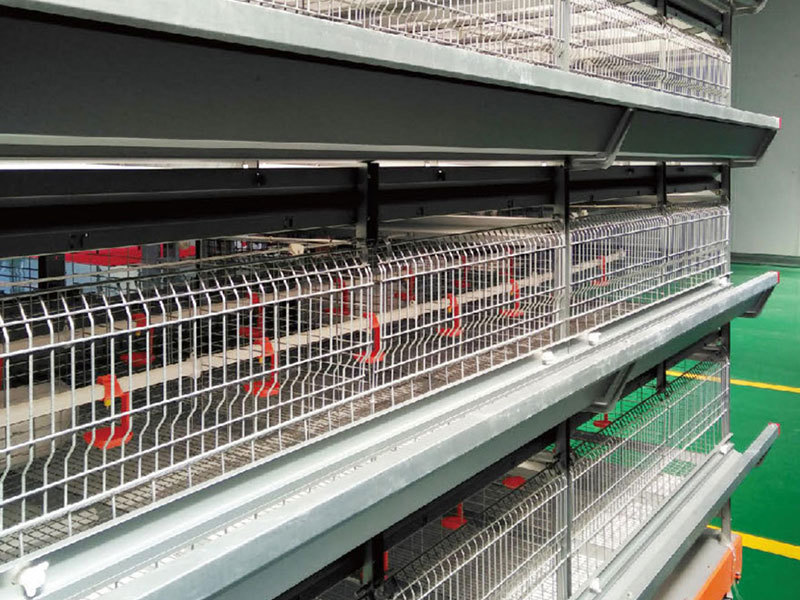Chicken Manure Fertilizer Processing Machines: A Comprehensive Guide
Introduction
Chicken manure is a valuable organic resource that can be converted into high-quality fertilizer through proper processing. With the increasing demand for organic farming and sustainable agriculture, the use of chicken manure as fertilizer has gained significant attention. However, raw chicken manure contains high levels of pathogens, ammonia, and undigested nutrients that can harm crops if not properly treated. To address this issue, various chicken manure fertilizer processing machines have been developed to efficiently convert waste into safe and nutrient-rich organic fertilizer.
This guide explores the different types of chicken manure fertilizer processing machines, their functions, benefits, and the overall process of transforming chicken manure into organic fertilizer.
1. Importance of Processing Chicken Manure
Raw chicken manure is rich in nitrogen, phosphorus, potassium, and other micronutrients essential for plant growth. However, it also contains harmful elements such as:
- Pathogens (E. coli, Salmonella)
- Ammonia gas (can burn plants)
- High moisture content (promotes odor and fly breeding)
- Undigested feed residues (may contain antibiotics or hormones)
Direct application of untreated chicken manure can lead to soil contamination, crop damage, and environmental pollution. Therefore, processing chicken manure into fertilizer is necessary to eliminate pathogens, reduce odor, and stabilize nutrients for plant absorption.
2. Chicken Manure Fertilizer Processing Methods
There are several methods to process chicken manure into fertilizer, including:
A. Composting
Composting is the most common method, involving microbial decomposition under controlled conditions. The process requires proper aeration, moisture, and carbon-to-nitrogen (C/N) ratio balance.
B. Fermentation
Fermentation uses beneficial microorganisms to break down organic matter, reducing harmful bacteria and accelerating decomposition.
C. Drying & Granulation
After composting or fermentation, chicken manure can be dried and granulated into uniform pellets for easier storage and application.
Each method requires specialized machinery to optimize efficiency and output quality.
3. Key Chicken Manure Fertilizer Processing Machines
1. Chicken Manure Dehydrator (Solid-Liquid Separator)
Function: Removes excess water from fresh chicken manure, reducing moisture content from ~70% to ~30%.
Benefits:
- Reduces transportation costs
- Minimizes odor
- Prepares manure for further processing
Types:
- Screw press separator
- Belt press separator
- Centrifugal separator
2. Compost Turner (Windrow Turner)
Function: Aerates and mixes composting chicken manure to accelerate decomposition.
Benefits:
- Improves oxygen supply for microbes
- Reduces composting time (from months to weeks)
- Eliminates pathogens and weed seeds
Types:
- Crawler-type compost turner
- Self-propelled compost turner
- Hydraulic compost turner
3. Fermentation Tank (Closed System)
Function: Provides a controlled environment for microbial fermentation.
Benefits:
- Faster decomposition (7-15 days)
- No odor emission
- High-quality organic fertilizer output
4. Chicken Manure Dryer
Function: Reduces moisture content further (to ~10-15%) for granulation.
Types:
- Rotary drum dryer
- Belt dryer
- Fluidized bed dryer
5. Fertilizer Crusher
Function: Crushes composted manure into fine powder for granulation.
Types:
- Chain crusher
- Hammer mill crusher
6. Fertilizer Granulator
Function: Converts powdered chicken manure into uniform granules for easy application.
Types:
- Rotary drum granulator
- Disc granulator
- Flat die pellet mill
7. Fertilizer Screening Machine
Function: Separates oversized or undersized granules to ensure uniform size.
8. Fertilizer Coating Machine
Function: Applies a protective coating to granules to prevent caking and improve nutrient release.
9. Packaging Machine
Function: Automatically weighs and packs finished fertilizer into bags.
4. Chicken Manure Fertilizer Production Process
Step 1: Collection & Pre-Treatment
- Fresh chicken manure is collected and pre-treated to remove large debris.
Step 2: Solid-Liquid Separation
- A dehydrator separates liquid (used as liquid fertilizer) from solid manure.
Step 3: Composting/Fermentation
- Solid manure is piled and turned regularly (or placed in a fermentation tank).
- Temperature reaches 50-70°C, killing pathogens.
Step 4: Crushing & Mixing
- Composted manure is crushed and mixed with additives (e.g., straw, sawdust) to adjust C/N ratio.
Step 5: Drying
- Moisture is reduced to prepare for granulation.
Step 6: Granulation
- Powdered manure is formed into granules.
Step 7: Screening & Coating
- Granules are screened, and a coating is applied if needed.
Step 8: Packaging
- Final product is packed for storage or sale.
5. Benefits of Using Chicken Manure Fertilizer Machines
- Eco-friendly: Reduces pollution and waste.
- Cost-effective: Converts waste into valuable fertilizer.
- High efficiency: Automated processing saves labor.
- Improved crop yield: Provides balanced nutrients for plants.
- Odor control: Minimizes unpleasant smells.
6. Choosing the Right Processing Machines
When selecting chicken manure fertilizer processing equipment, consider:
- Capacity requirements (small-scale vs. large-scale)
- Moisture content of raw manure
- Energy efficiency (electric, diesel, or biogas-powered)
- Automation level (manual, semi-automatic, or fully automatic)
7. Maintenance & Safety Tips
- Regularly clean machines to prevent clogging.
- Lubricate moving parts to extend lifespan.
- Follow safety guidelines to avoid accidents.
8. Conclusion
Chicken manure fertilizer processing machines play a crucial role in sustainable agriculture by converting waste into nutrient-rich organic fertilizer. From dehydrators to granulators, each machine serves a specific purpose in the production chain, ensuring efficiency, safety, and environmental protection.
By investing in the right equipment, farmers and organic fertilizer producers can maximize resource utilization, reduce waste, and contribute to greener farming practices.
Would you like additional details on any specific machine or process?

 Catalogue
Catalogue








 Whatsapp
Whatsapp Телефон
Телефон
Комментарий
(0)